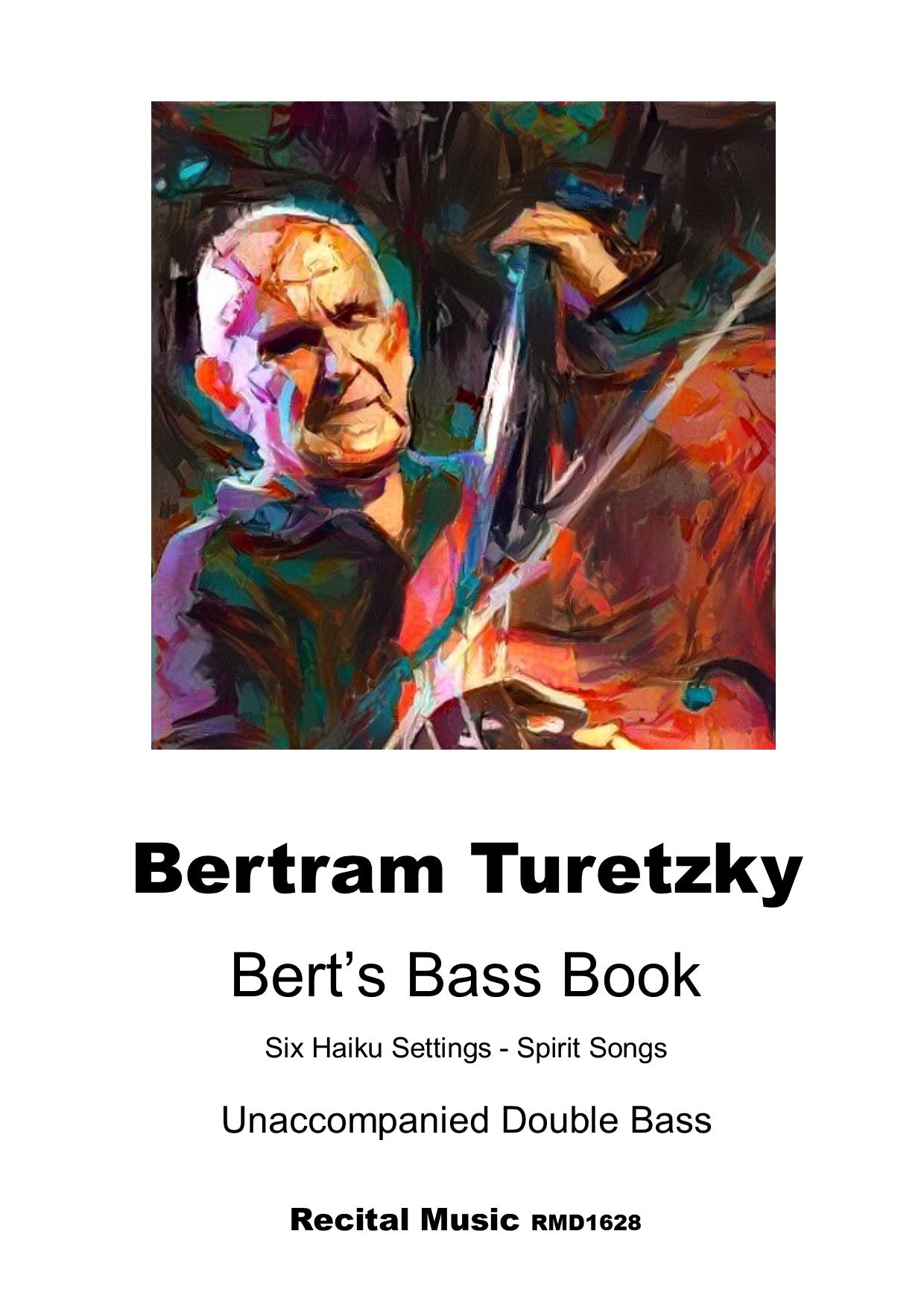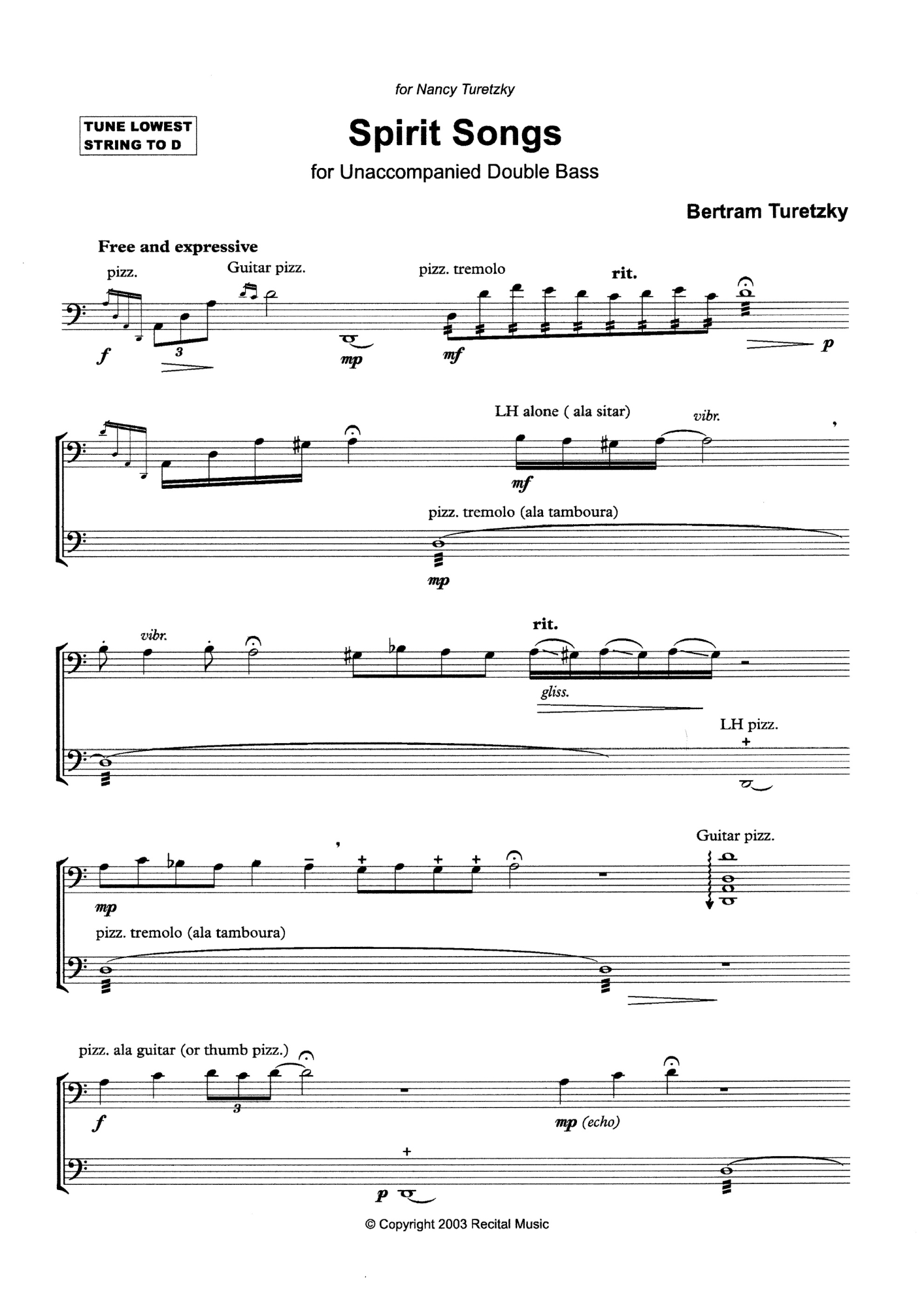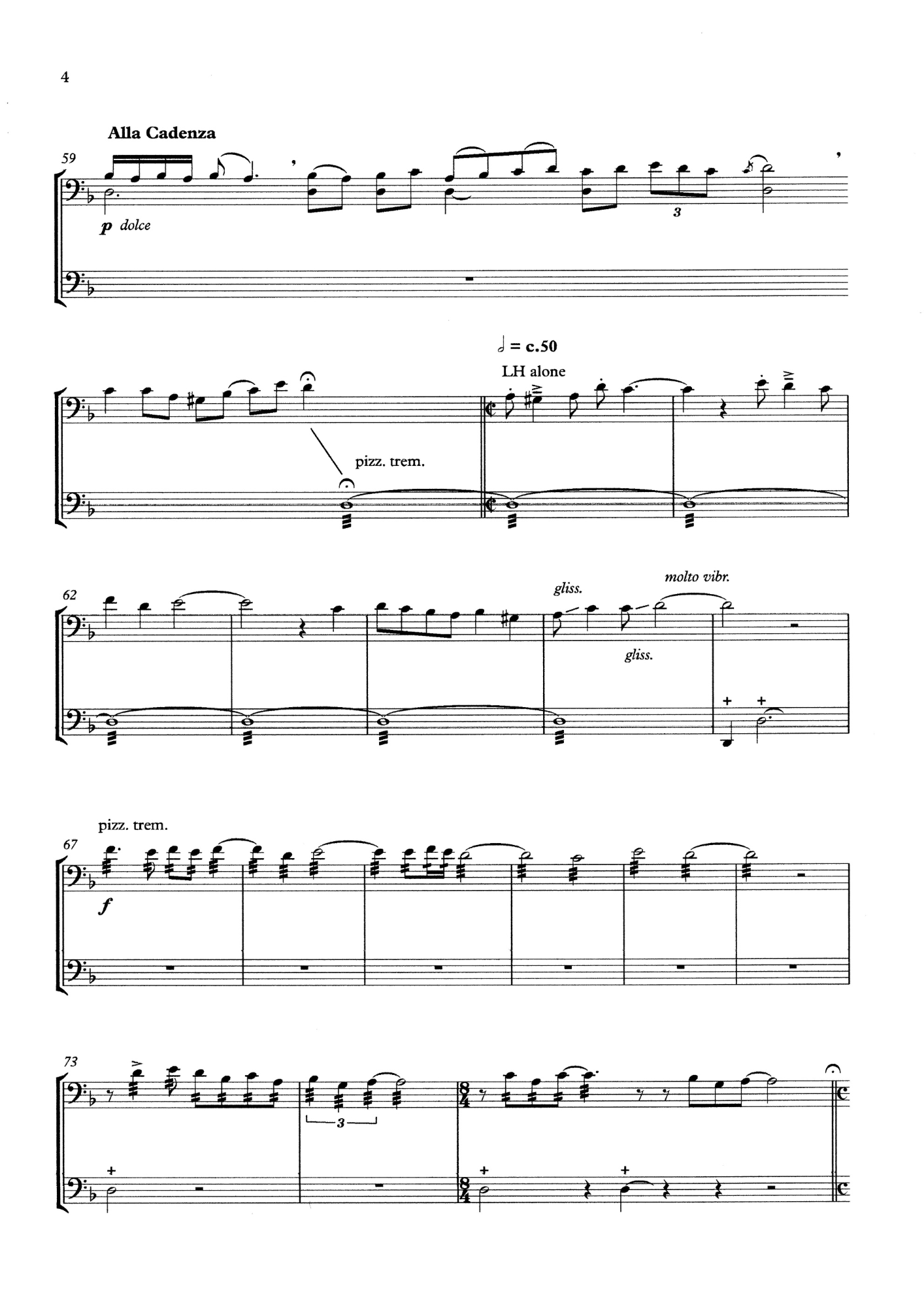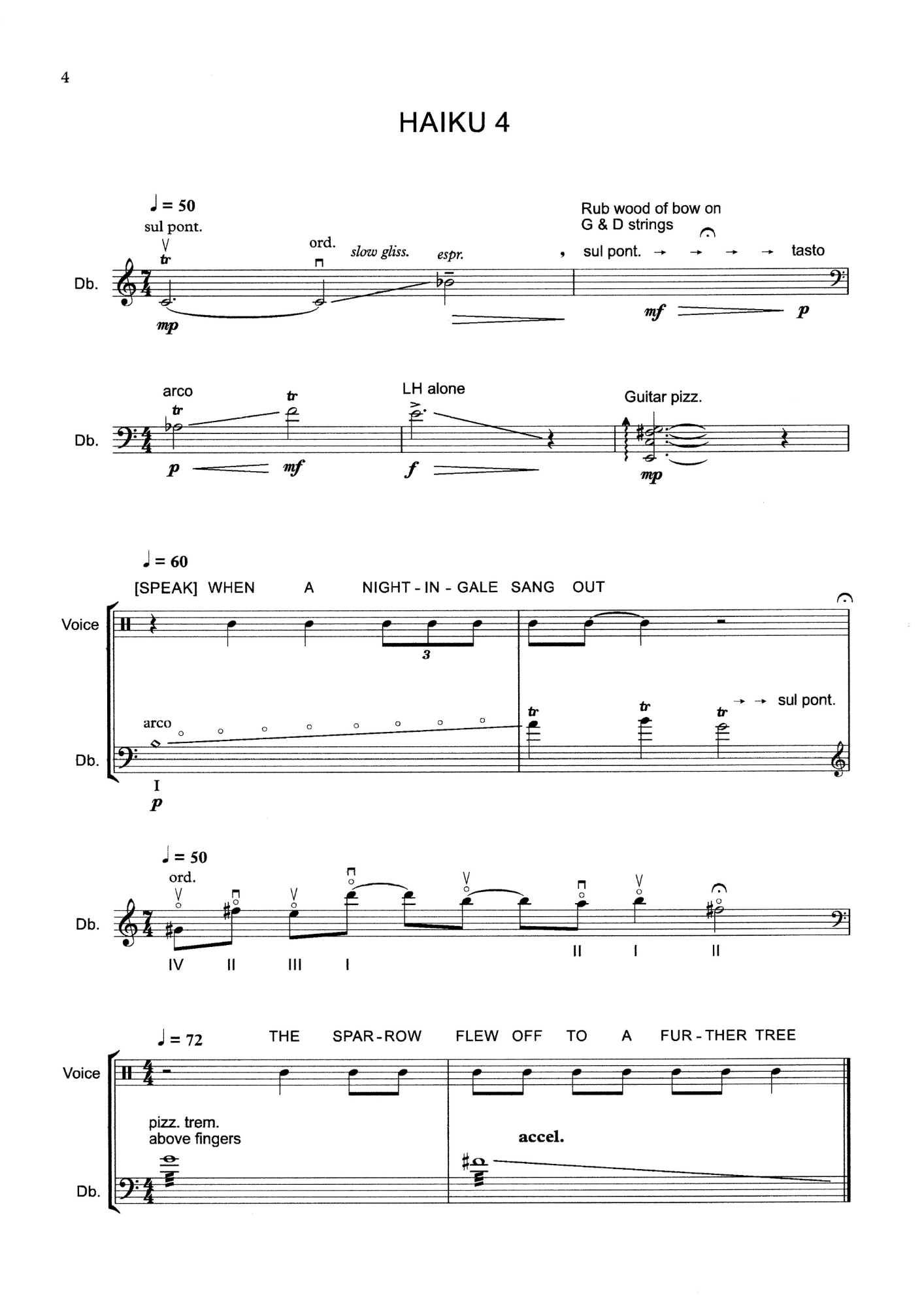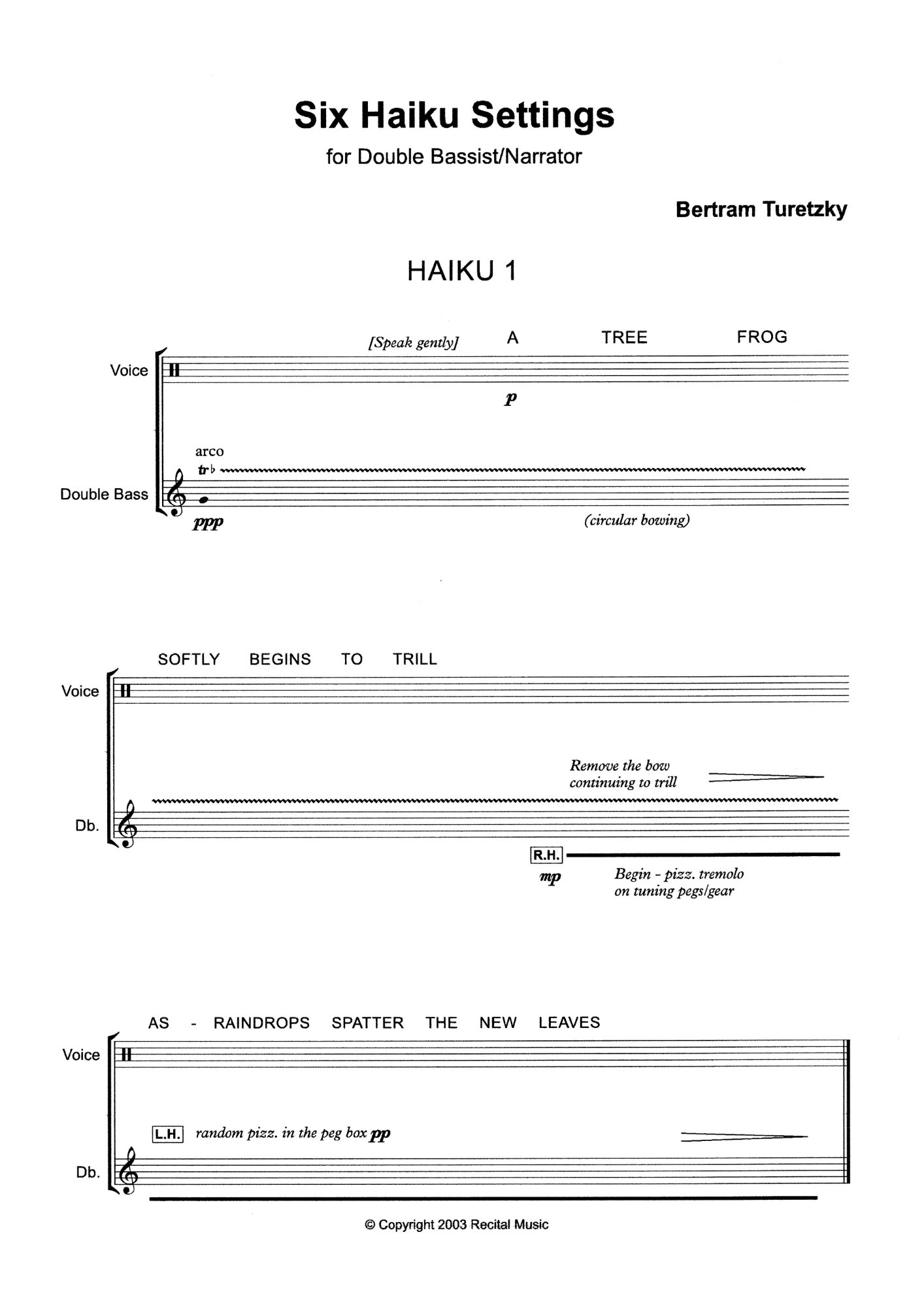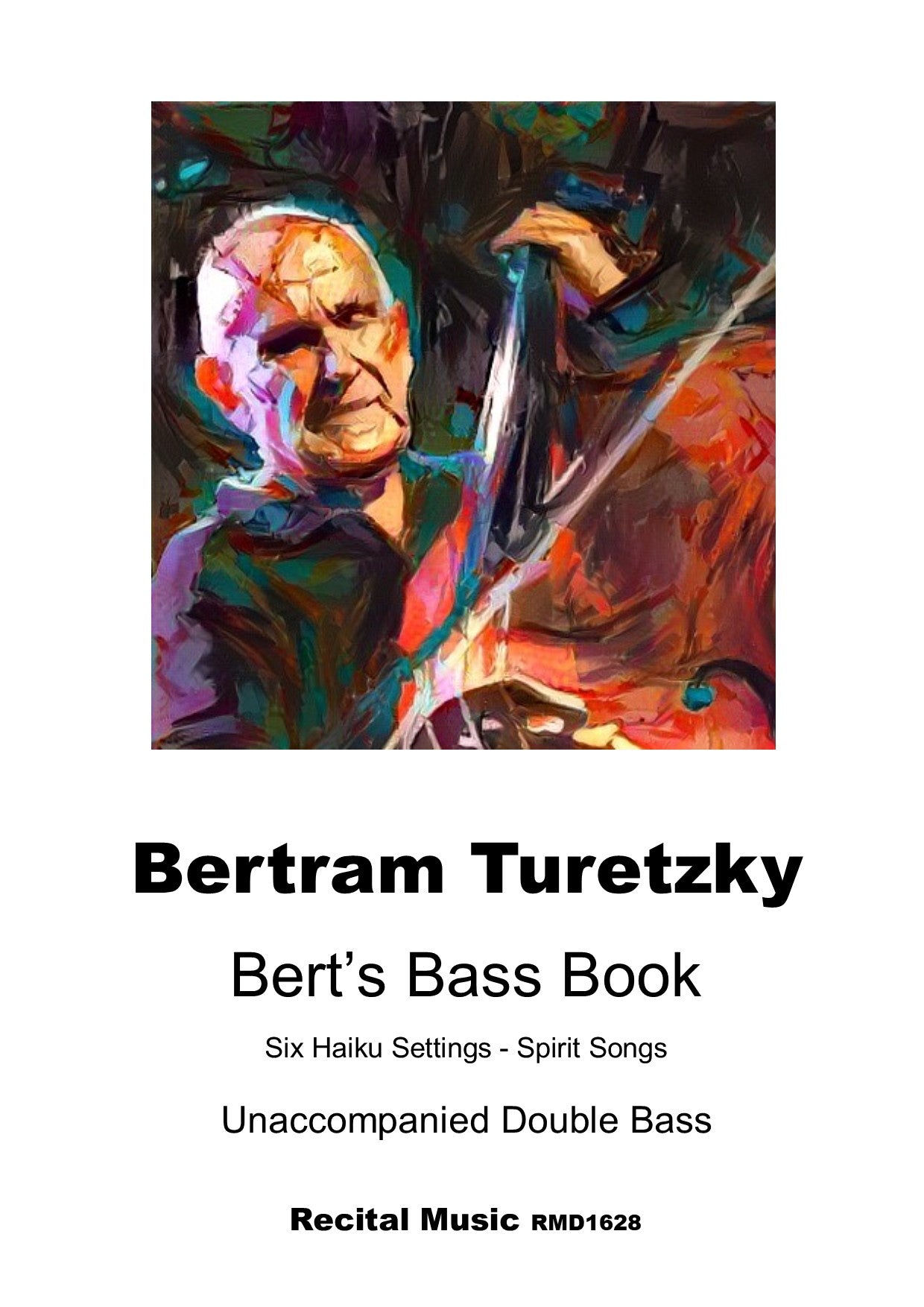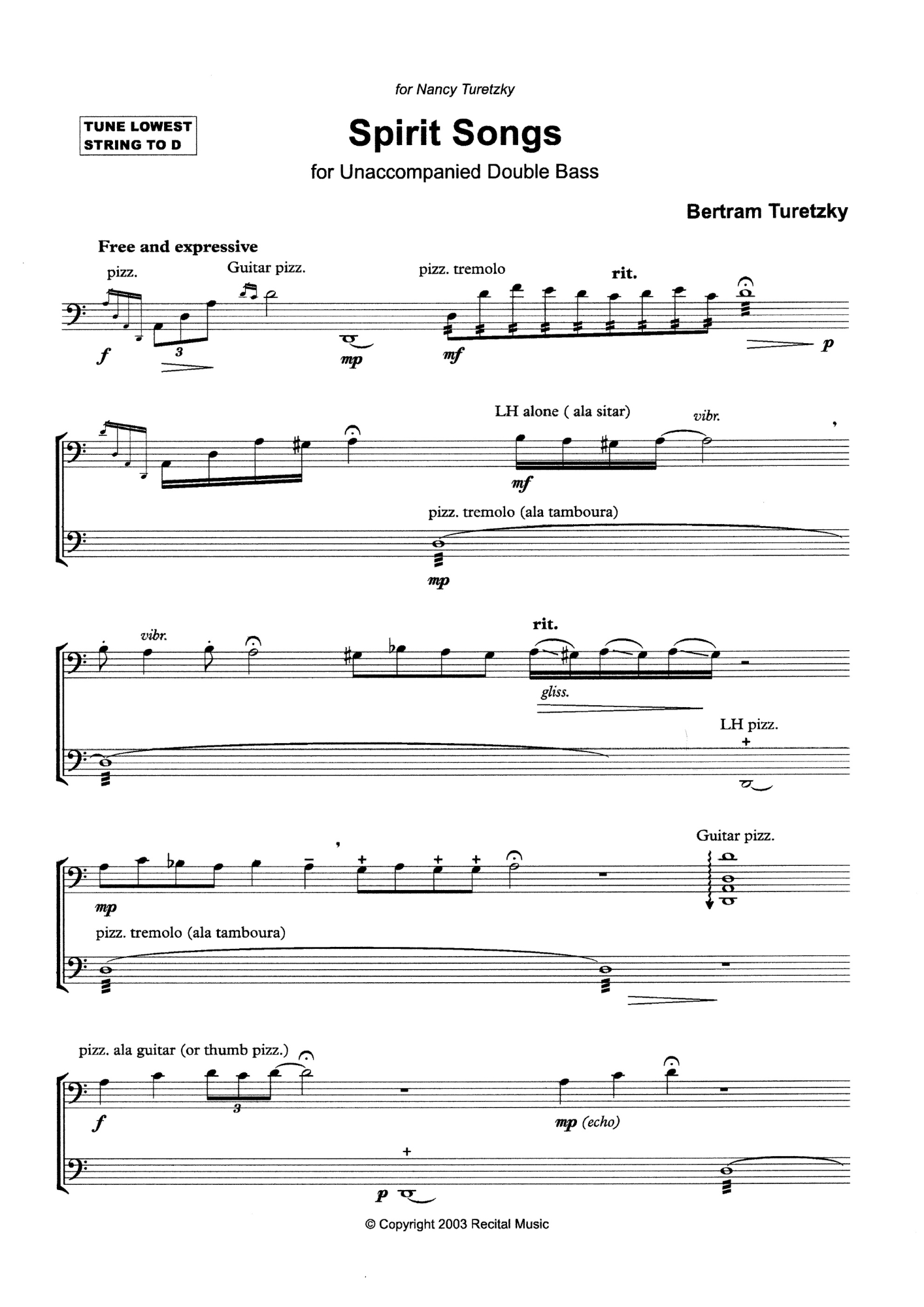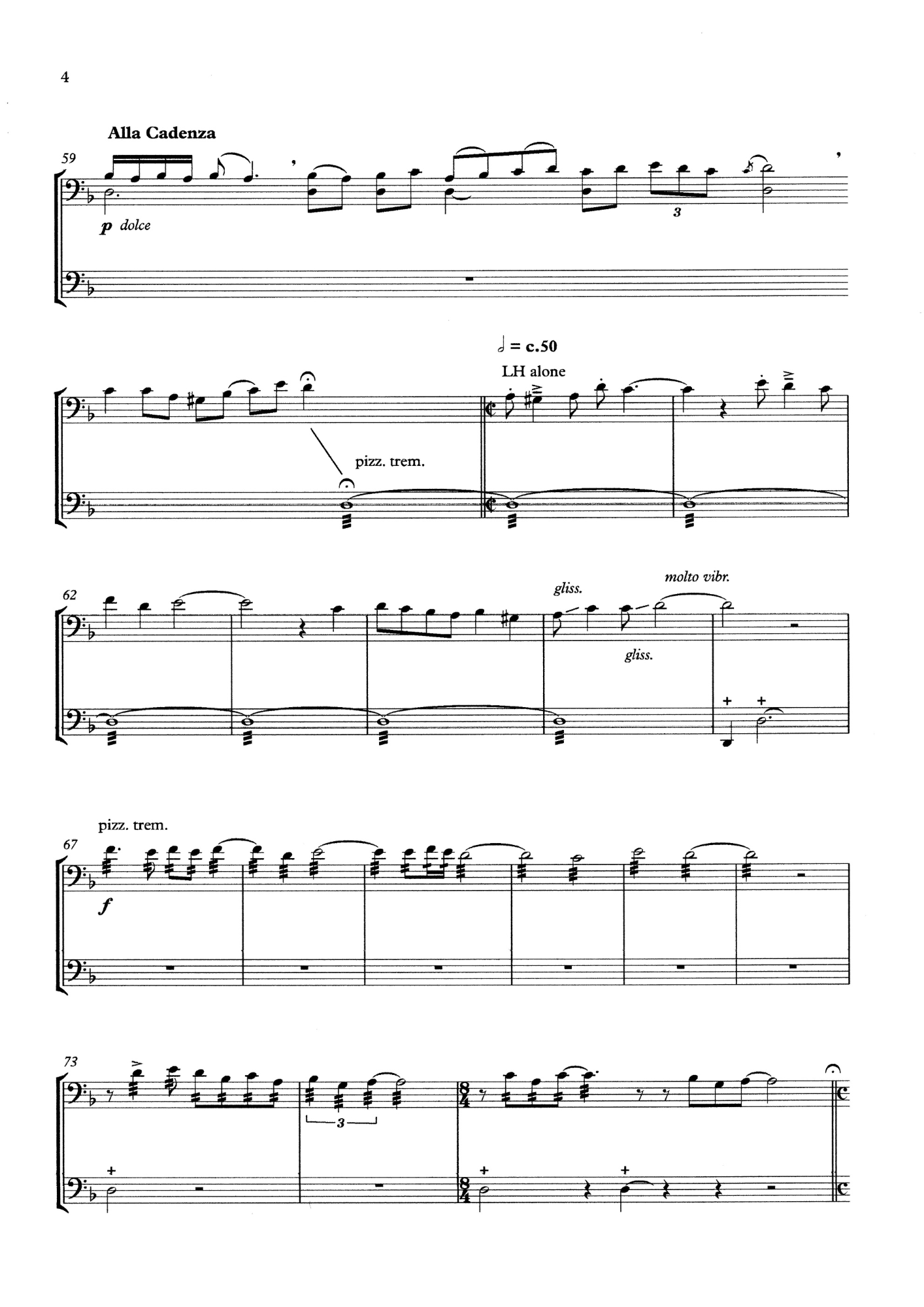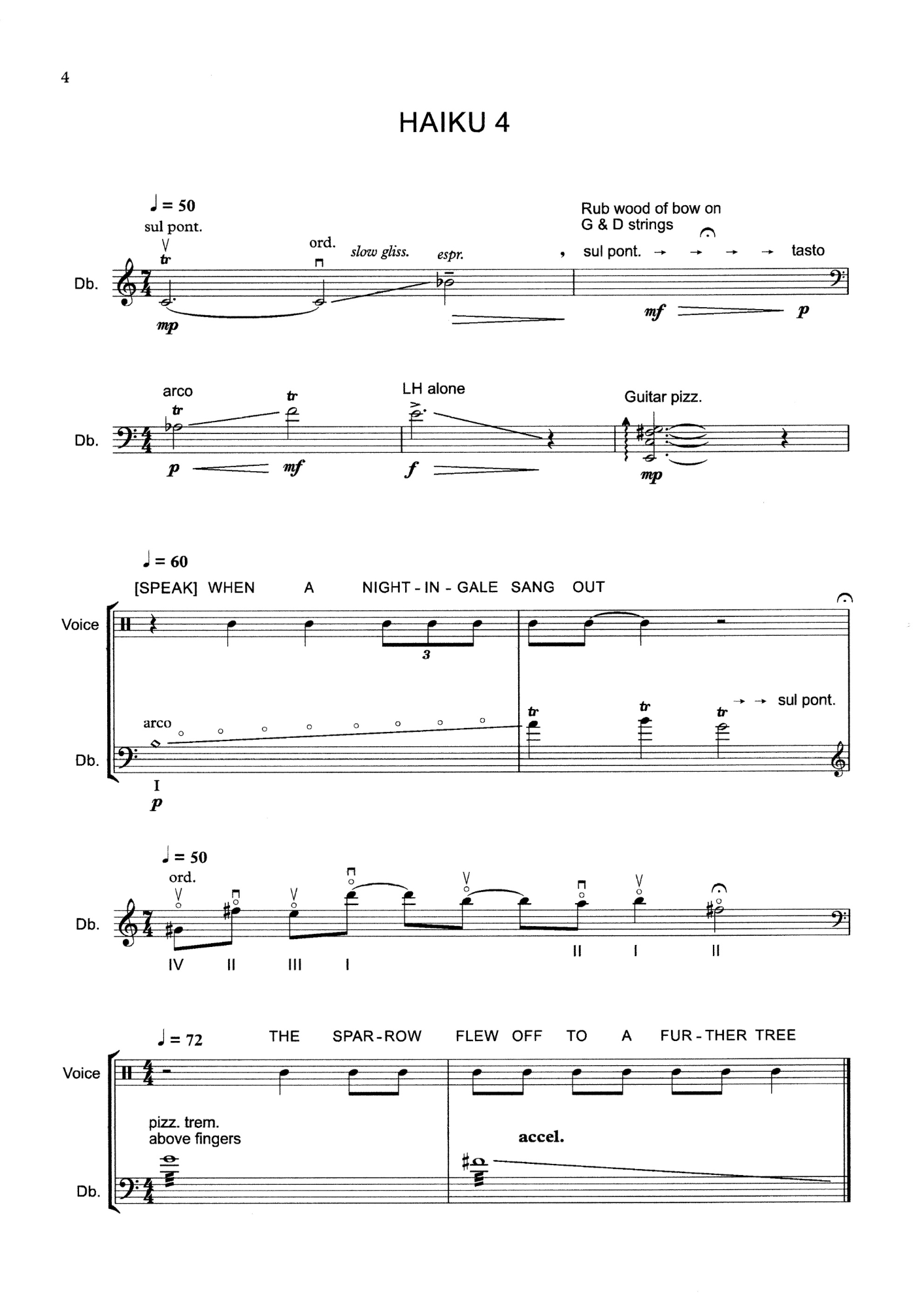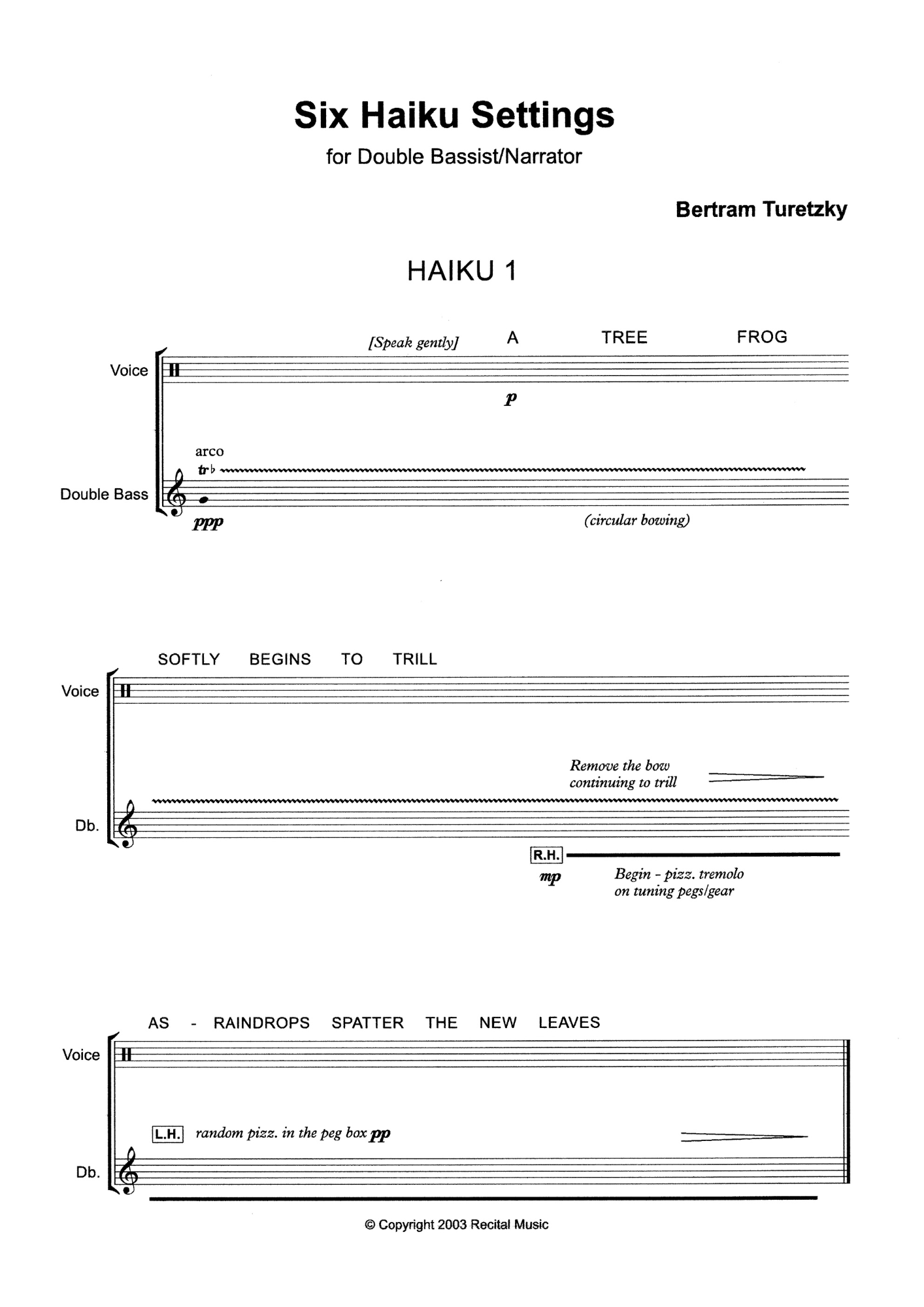David Heyes
Bert's Bass Book for Unaccompanied Double Bass
Bert's Bass Book for Unaccompanied Double Bass
Couldn't load pickup availability
About the Book
Bert’s Bass Book brings together two exciting, dramatic and inventive works for solo double bass, each exploring unique sound worlds which display many different aspects of the modern double bass.
Spirit Songs is played pizzicato throughout, employing a number of performing styles, blending jazz and contemporary idioms in music which is expansive and atmospheric, contrasting Six Haiku Settings which utilizes new techniques and effects available to the contemporary bassist.
Each piece offers a range of accessible musical and technical challenges, ideal for the adventurous bassist who is seeking music which demonstrates both musical and technical prowess.
Your purchase includes the sheet music, performance notes, and insights from Bert.
1. Six Haiku Settings
Composed in 1980, these brief vignettes successfully combine music and text, employing various contemporary techniques. Effective sound worlds and timbres are explored, offering new and interesting repertoire for the adventurous bassist, with space for atmospheric interpretation and performance. The overall mood of the six pieces is gentle, calm and meditative.
Six Haiku Settings was premiered by the composer and is for bassist-narrator but could also be performed with a narrator if preferable.
2. Spirit Songs
“Spirit Songs was composed between 1989 and 1994 and was conceived to be performed on a double bass with strings sensitive to pizzicato. The instrument should also be very resonant. The piece should have a feeling of an improvisation, played on a wonderful instrument that could sound like a sitar, tamboura, guitar and bazooka (but not all at the same time!) and, of course, the instrument is the ‘noble but misunderstood’ double bass.” [Bert Turetzky, 2002]
Find out more about Bert's Performance Techniques
About the Composer
Born on 14 February 1933 in Norwich, Connecticut Bertram Turetzky took up the tenor banjo at the age of 12 or 13, he switched to the guitar in high school, having fallen in love with jazz, and then changed to the double bass which he described as '...the core of everything, the glue between the harmony and the wind instruments.'
He subsequently studied at New York University and Hartt College of Music of the University of Hartford and slowly changed direction from jazz to everything else a bassist is asked to do - symphony, opera, contemporary, jazz, teaching and recitals, featuring many of the new works that were being written for him. For many years he combined his hectic performance schedule with teaching, first at the Hartt School of Music and from 1968 as Professor of Music at the University of California, San Diego, where he retired as 'Distinguished Professor Emeritus' only a few years ago.
Alongside his passion for contemporary music, Bert has also played a wealth of music from the 15th and 16th-centuries. He has transcribed works for every possible combination of instruments, but usually including the flute which was always played by his wife Nancy, and the husband and wife partnership have been fearless in their promotion of music for this rare instrumental duo. The vast majority of repertoire for flute and double bass today was either written for Bert and Nancy, or inspired by them. Bert has an interest in any repertoire which features the double bass and has championed many chamber works which are unknown or have been forgotten.
Bert has composed and transcribed many works for double bass. For some years his interest in the music of Domenico Dragonetti (1763-1846) was a passion and in the early 1960s he edited six waltzes for unaccompanied double bass by the great Venetian bassist. Although Bert Turetzky has spent most of his life playing modern music and creating every possible sound and noise that the double bass can produce, his own compositions, on the whole, are far more traditional and accessible. He has composed a whole range of music for double bass, probably for his own use or for his students, and into his 80s the desire to compose and perform are as strong as ever.
